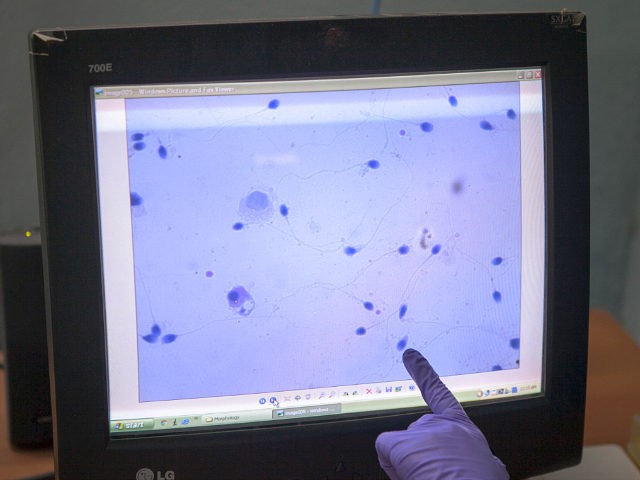The sperm count in men living in developed countries has fallen by a remarkable 50 percent over the past 40 years, according to a new medical study.
A team of scientists from Hebrew University-Hadassah Braun School of Public Health and Community Medicine in Jerusalem have made known the results of their research but confessed that the reasons behind the dramatic drop in fertility remain largely unknown.
Theories behind the causes of falling fertility include elements as diverse as “exposure to chemicals used in pesticides and plastics, obesity, smoking, stress, diet, and even watching too much TV,” but the fact is that no one has yet figured out the root cause. Some have suggested that excessive exposure to microwaves or even wifi may contribute to the downward trend.
The researchers assert that this downturn in fertility could possibly result in a decline in men’s health, with more radical predictions including “extinction” if a way isn’t found to turn the trend around.
“This study is an urgent wake-up call for researchers and health authorities around the world to investigate the causes of the sharp ongoing drop in sperm count,” according to Hagai Levine, one of the authors of the report.
Researchers analyzed data from 185 different studies examining sperm count concentration in men from North America, Europe, Australia, and New Zealand from 1973 to 2011 and concluded that total sperm count had declined by 59.3 percent during the 38-year period, while sperm concentration had dropped by 52.4 percent.
A similar decline was not found among men in South America, Asia, and Africa, leading the researchers to suspect that the problem derives from elements proper to the West, but they also noted that fewer studies on sperm count had been conducted in these regions.
Speaking with Reuters last July, Daniel Brison, an embryology and stem-cell specialist at Manchester University said that the downward trend had “major implications not just for fertility, but for male health and wider public health.”
“An unanswered question is whether the impact of whatever is causing declining sperm counts will be seen in future generations of children via epigenetic (gene modifications) or other mechanisms operating in sperm,” he said.
An essential next step will be to identify the root cause or causes of the drop in fertility.
“Given that we still do not know what lifestyle, dietary or chemical exposures might have caused this decrease, research efforts to identify (them) need to be redoubled and to be nonpresumptive as to cause,” declared Richard Sharpe of Edinburgh University.
While some researchers investigate the loss of men’s fertility, others are experimenting with ways to restore it. A study published this week in Nature found that sperm quantity in rats had been “significantly” increased through the use of the acid echinacoside, targeting the hypothalamic androgen receptor.
Despite the encouraging results, it is still too early to know whether such a therapy would be safe and effective for humans.
Follow Thomas D. Williams on Twitter Follow @tdwilliamsrome.

COMMENTS
Please let us know if you're having issues with commenting.